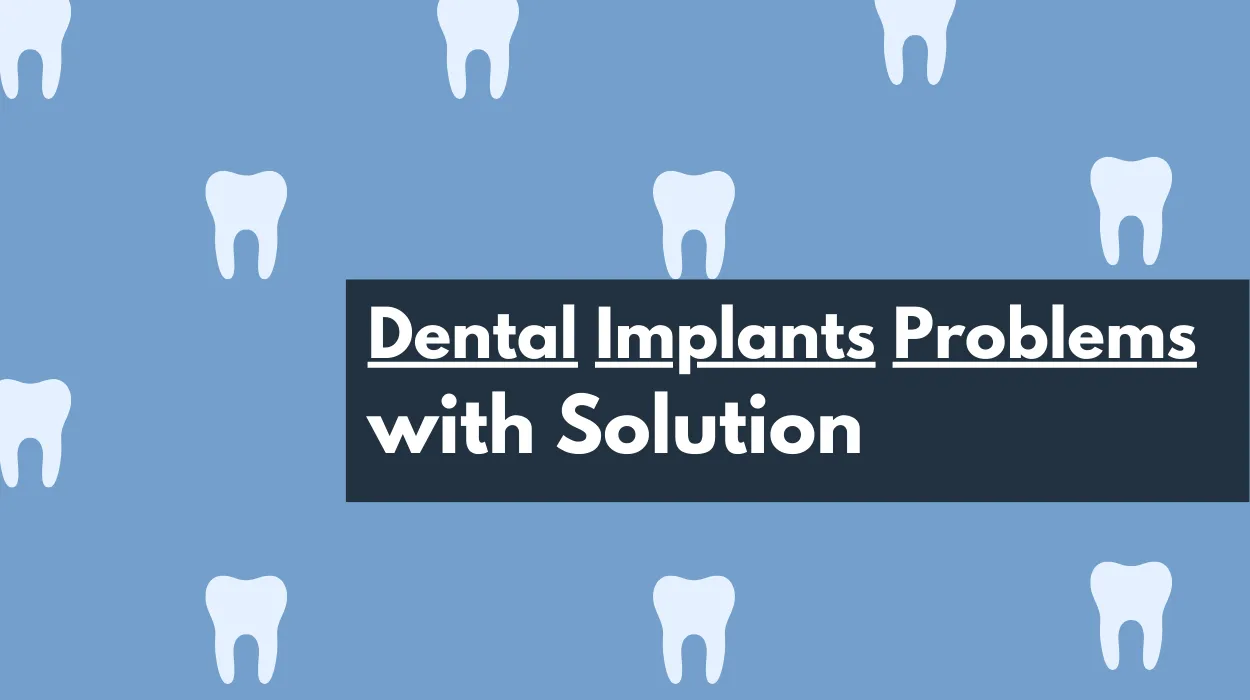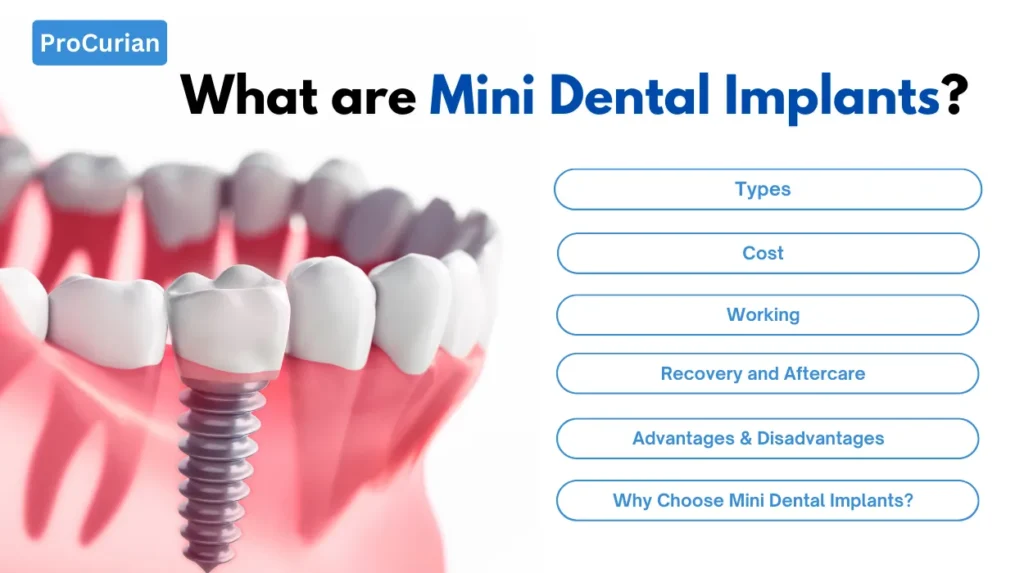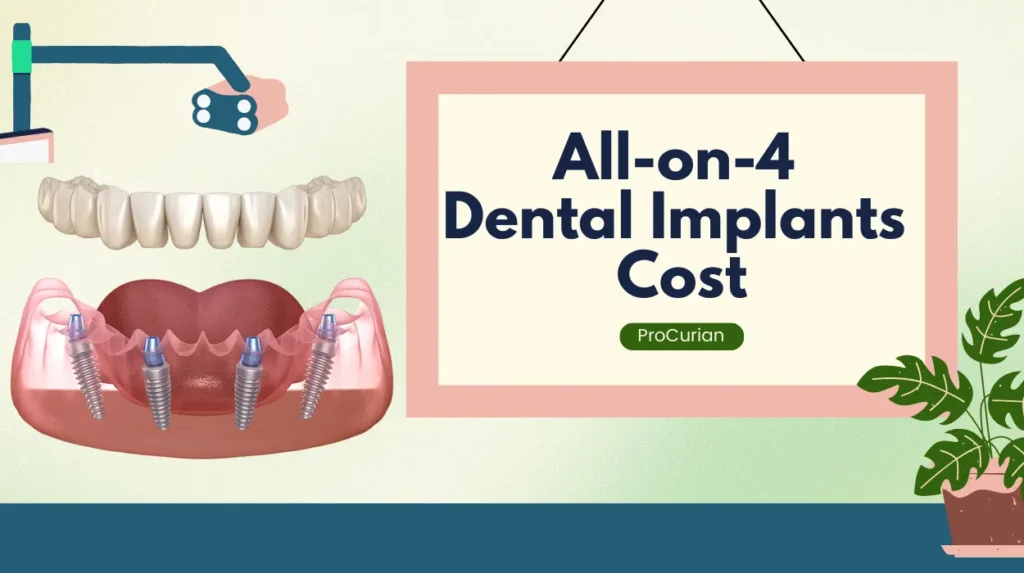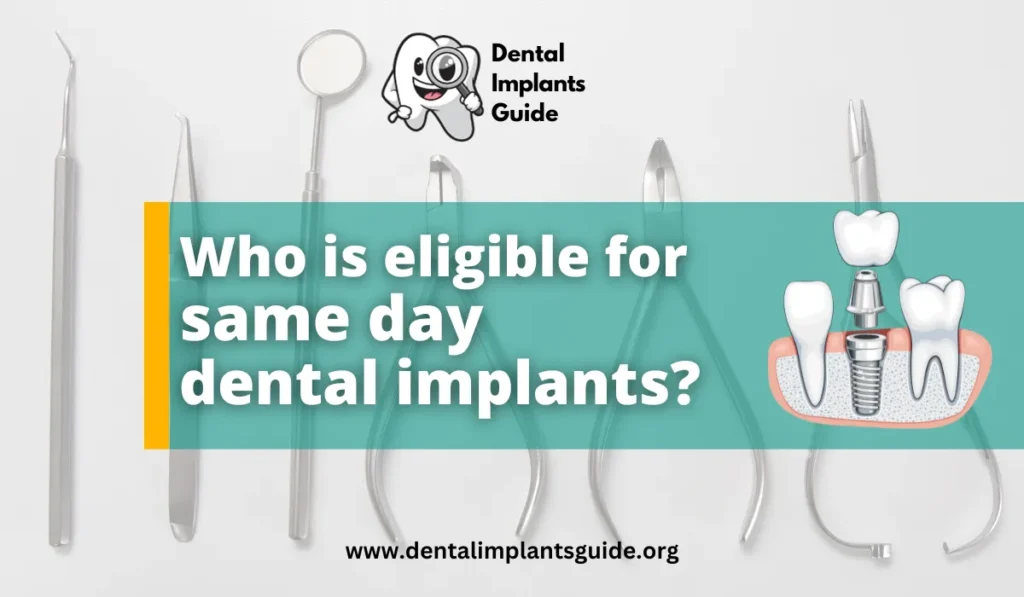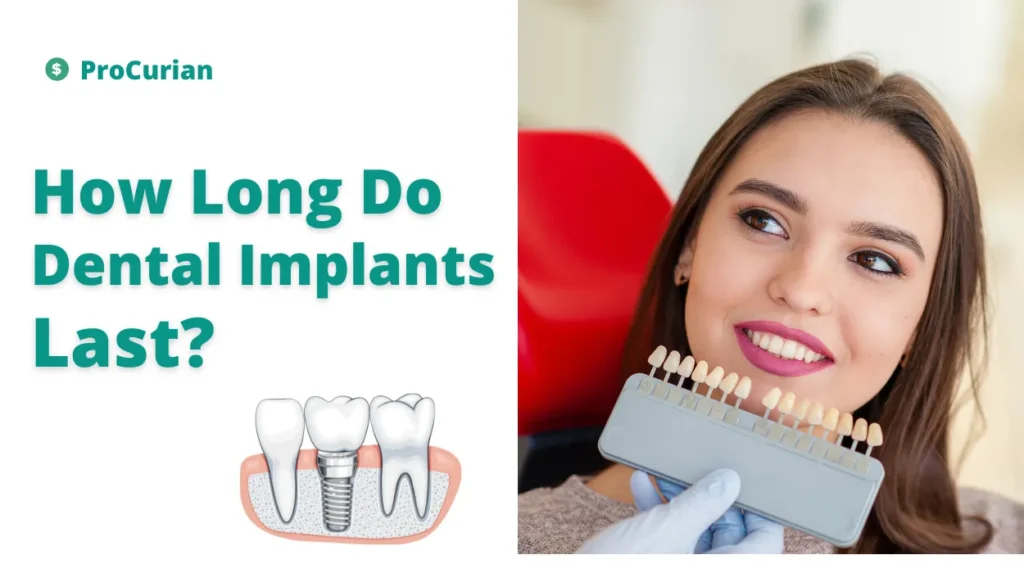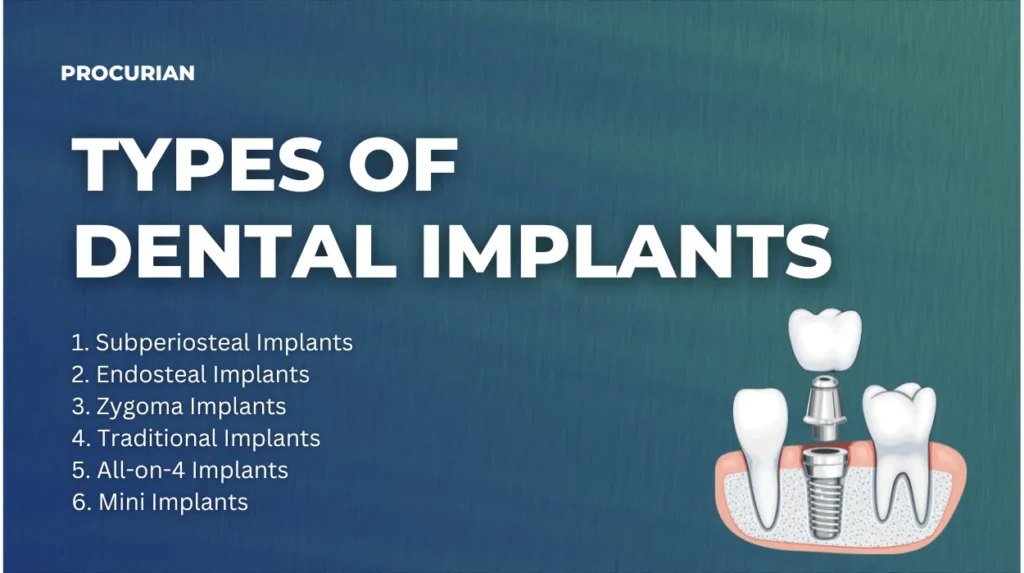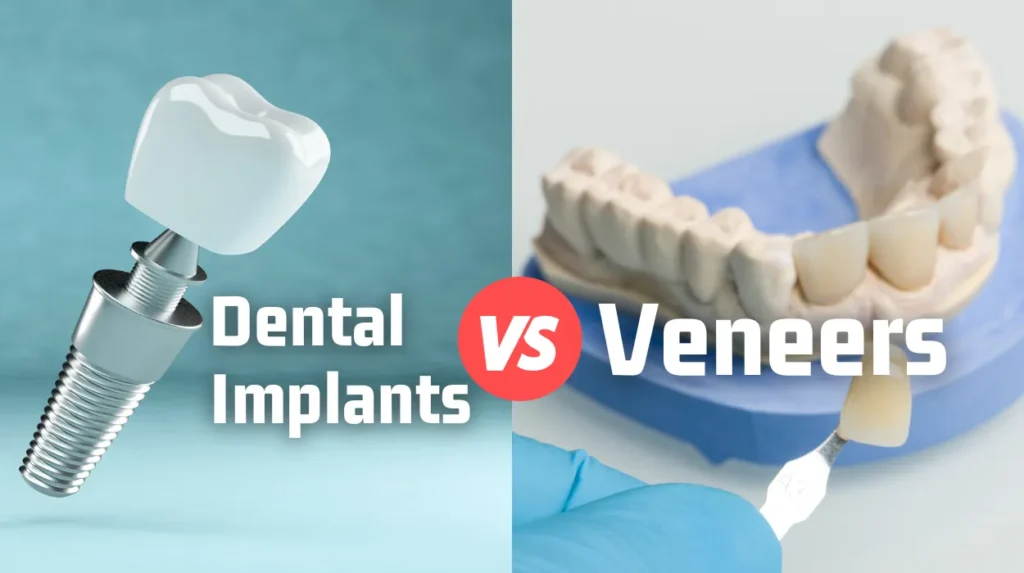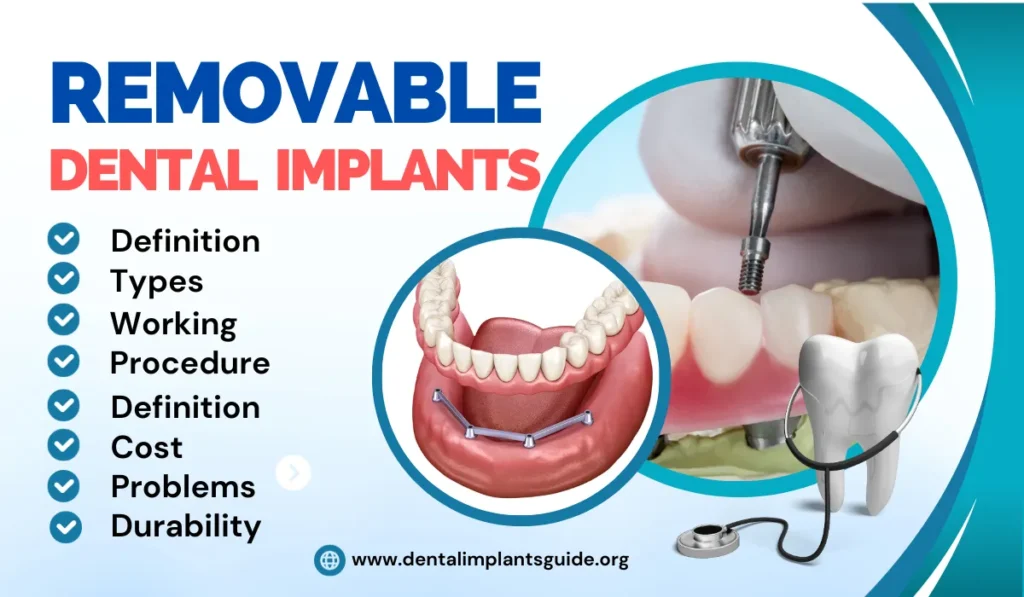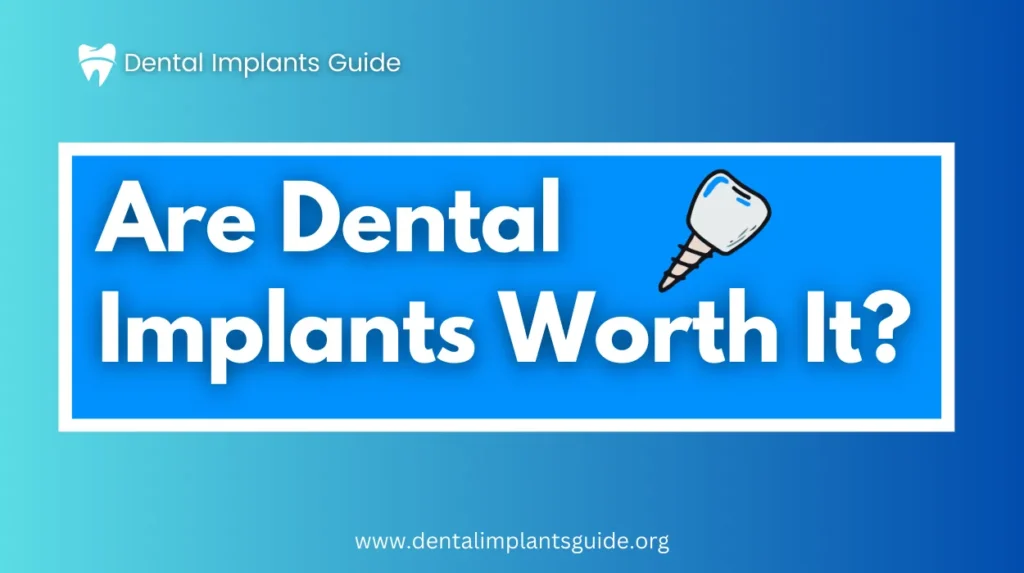
Hello and welcome! If you’re reading this, you’re probably thinking about getting dental implants or already have them.
Dental implants can be a fantastic solution for replacing missing teeth, but they come with their own set of complications.
This article will go over dental implant problems, what to expect, and how to deal with them.
Dental implants are artificial tooth roots made of titanium that are surgically placed into your jawbone to support replacement teeth. They are a popular choice because they look and feel like natural teeth. However, there can be issues along the way.
Common Dental Implants Problems with Solution
① Infection

Problem ➡ Sometimes, after getting dental implants, you might notice redness, swelling, or pain around the implant area. This could be a sign of an infection, which is like a germ invasion in your mouth.
Solution ➡ If you suspect an infection, don’t wait; contact your dentist right away. They’ll give you antibiotics, which are like little soldiers that fight off the germs. Also, remember to brush and floss your teeth really well to prevent infections in the first place.
② Implant Failure

Problem ➡ Imagine your implant didn’t stick properly to your jawbone, and it starts wobbling like a loose tooth. That’s what happens when we talk about implant failure. It’s like the implant didn’t make friends with your jawbone.
Solution ➡ If this happens, your dentist might need to remove the wobbly implant. They’ll figure out why it didn’t work and maybe try again later when everything’s in better shape.
③ Bone Loss
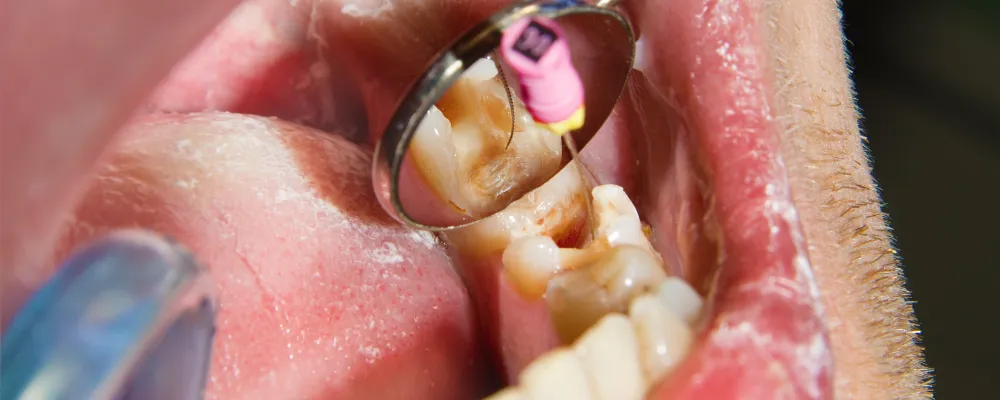
Problem ➡ Sometimes, the bone around your implant can get thinner over time, like a sandcastle melting when the tide comes in. This can happen if there was an infection or if you grind your teeth a lot.
Solution ➡ To fix this, your dentist might do something called “bone grafting,” which is like adding more sand to the castle to make it strong again. This helps your implant stay sturdy.
④ Nerve Damage

Problem ➡ Nerves in your mouth can be delicate, and they might get a little hurt during the implant process. It’s rare, but it can make your lips, tongue, or chin feel funny – like they’re asleep or tingling.
Solution ➡ Your dentist can do special procedures to help your nerves get better over time, just like waking up from a nap.
⑤ Implant Rejection
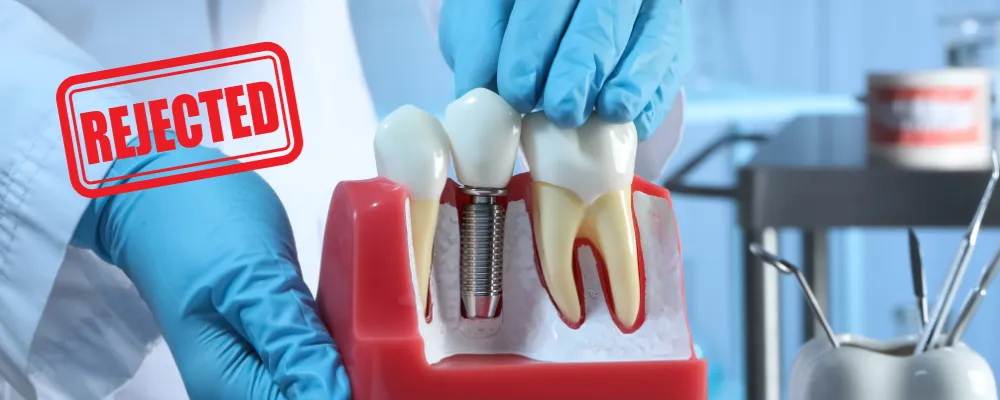
Problem ➡ Sometimes, your body might not like the implant, almost like it’s saying, “I don’t want this here!” This can lead to discomfort and unhappiness.
Solution ➡ If your body rejects the implant, don’t worry. Your dentist will work with you to find a different way to make your smile shine.
⑥ Peri-implantitis

Problem ➡ This is like a red flag for your implant. It’s when the area around your implant gets all puffy and angry, which can lead to bone loss and make your implant shaky.
Solution ➡ Early detection is key. Your dentist can clean things up and might give you antibiotics to calm things down. Think of it as giving your implant a warm hug to make it feel better.
⑦ Screw Loosening
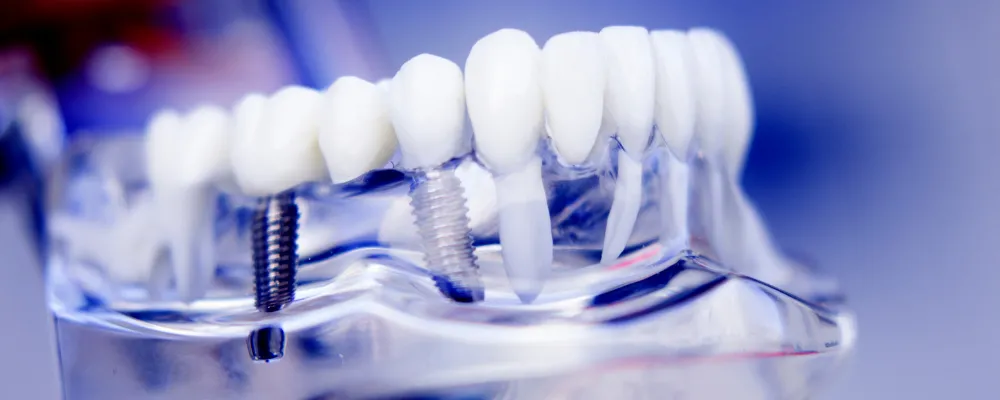
Problem ➡ Sometimes, the tiny screws holding your implant parts together can loosen up over time, like a loose button on your shirt.
Solution ➡ No worries! Your dentist can tighten those screws during your regular check-ups to keep your implant snug and secure.
⑧ Fracture of the Implant or Abutment

Problem ➡ Rarely, the implant or the part that connects it to your crown (that’s the top part that looks like a tooth) can break or crack.
Solution ➡ If this happens, don’t panic. Your dentist will replace the broken part to keep your smile looking great.
Symptoms of dental implant problems
When it comes to dental implant problems, your body often tries to tell you that something isn’t quite right. Here are some signs and symptoms to watch out for:
- Pain and Discomfort ➡ One of the most common signs is pain around the implant site. It might be a persistent ache, sharp pain, or discomfort when you chew.
- Swelling ➡ If you notice swelling around the implant area or in your gums, it’s a signal that something might be off.
- Redness and Heat ➡ Sometimes, the area around the implant can become red and warm to the touch, indicating inflammation.
- Bleeding Gums ➡ If your gums bleed around the implant site, especially when you brush or floss, it’s a sign that something might not be right.
- Loose or Shifting Implant ➡ If you feel like the implant is moving or shifting slightly when you touch it with your tongue or fingers, it’s a clear indicator of a problem.
- Pus or Bad Taste ➡ The presence of pus or a bad taste in your mouth near the implant is a concerning sign and suggests infection.
- Difficulty Eating ➡ Problems with your dental implant can make it challenging to chew or bite comfortably. If you experience consistent difficulty eating, it’s worth investigating.
- Numbness or Tingling ➡ If you notice numbness or tingling in your lips, tongue, or chin, it might be related to nerve damage around the implant.
- Foul Odor ➡ A persistent bad odor from the implant site can indicate infection or other issues.
- Visible Changes: Sometimes, you can visually see changes, such as receding gums, exposed implant components, or visible swelling.
- Gum Recession: If your gums start to recede, exposing more of the implant, it’s a sign of trouble.
- Discomfort While Speaking ➡ Difficulty speaking clearly or discomfort while talking could be related to an implant issue.
- Screw Loosening ➡ If you feel something is loose or find a loose screw around the implant, it’s a sign of trouble.
- Fractured Crown➡ A cracked or damaged crown (the visible part of the implant) can be a symptom of underlying issues.
How are dental implant problems treated?
Treatment for dental implant problems depends on the type of problem. Some common treatments include:
- Antibiotics are used to treat infections.
- Surgery may be necessary to remove a loose implant, repair a fractured implant, or close a sinus perforation.
- Bone grafting may be necessary to build up the jawbone if it has deteriorated.
- If the implant fails, it may need to be replaced.
FAQs
What are dental implant problems?
Dental implant problems are issues like infection, implant failure, or nerve damage that can happen after getting dental implants.
Can infections around dental implants be treated?
Yes, infections can be treated with antibiotics and proper cleaning. Early treatment is important.
What if my dental implant fails?
If an implant fails, it may need removal. Addressing the underlying issue and trying again is possible.
How can bone loss around implants be fixed?
Bone loss can be fixed with bone grafting, which strengthens the implant’s foundation.
Is nerve damage common with dental implants?
Nerve damage is rare but possible. It can sometimes heal on its own, but repairs may be needed.
What if my body rejects the dental implant?
Implant rejection is very rare. Your dentist will help you find other solutions if it happens.
How can I prevent dental implant problems?
Choosing a good dentist, maintaining oral hygiene, and a healthy lifestyle can help prevent problems.
Can loose screws in dental implants be fixed?
Yes, loose screws can be tightened or replaced during regular check-ups to ensure implant stability.
What happens if a dental implant or abutment breaks?
If they break, your dentist will assess the damage and replace the broken part to restore function and appearance.
Final Thoughts
Dental implants can change your life, but they are not without problems. Understanding potential issues and taking precautions can help ensure that your implants last a lifetime.
Remember that selecting a skilled dentist, practicing good oral hygiene, going to regular check-ups, and making wise lifestyle choices are all important steps toward a healthy and confident smile.
If you have any concerns or questions about your dental implants, please leave them in the comments section. They work with you to ensure your oral health and the success of your implants. Smile on, and take care of those pearly whites!
